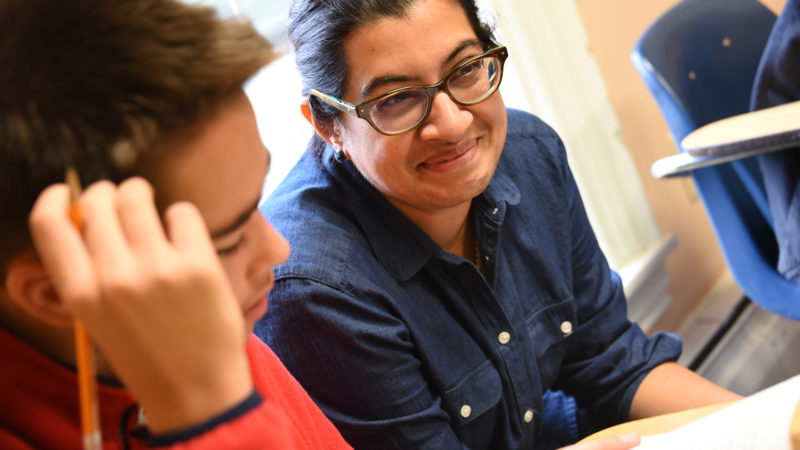Writing as a process
As Ed Sheeran’s “Touch and Go” plays from my desktop, my feet tapping to its rhythms, I click on the last essay to review from one of my seventh-grade English students. It’s a weekend morning, and Hurd House is quiet, save for the group of seagulls that has gathered by the building’s entrance, signaled by the call of leftover sandwich crusts and the quiet eddy of our campus.
When asked for my guiding principles about Middle School, I often turn to the writing process—and the way it illustrates how writing and living is a process leading towards greater self-awareness, agency, and voice.
I have been a teacher of writing since 1997, working with students aged 11-18. In that time, I have read thousands of essays, first sharing feedback by hand (in characteristic green gel pen) and now via this amazing editing platform called Google Docs, which allows one to comment and respond in fluid fashion.
I am inspired by the thousands of voices that I have been privileged to witness and discover, the myriad losses and lights that infuse our lives. My job as a teacher is to create the space in which students may express and hone their voices, and step in only when I can help with clarity and direction. Through revision, I ask my students to consider another perspective as they move towards the quality of thought that writing can express. We look each other in the eye and talk about what makes sense, what truths are most important to highlight and nurture.
Underlying those edits is a culture of mutual trust and respect. In order to truly share—and be seen—we need to feel a deeper belief in ourselves and our paths. Part of respecting someone is to take their work seriously, and encourage them to refine it. We are all human, and our writing is flawed, especially in the first drafting phase. Just yesterday I shared a recent letter to parents with my students, which included 38 edits and comments from our communications director. The students were both tickled and aghast that even after years of writing and revising, I had work to do, too.
It is no surprise that in the past five years, my students’ work and process has inspired me to write about my own experiences. In that time, I have written as often as I can—over a million words, total—including a manuscript about an accident that forced my father to relearn all basic skills, including seeing, speaking, swallowing, and yes, writing his name. To fuel this desire to speak and understand, I have also written poetry, attended workshops at Grub Street in Boston and the Kenyon Review Writer’s Workshop in creative non-fiction. This summer, I plan on finishing that manuscript and sharing it with others. The circle of feedback and revision is ever-enduring! It is one thing to teach and instruct, and another to immerse oneself in the process in real time, a reality that has informed my own work with students. I understand how attached we become to phrasing and narrative structure, the particular texture of our stories.
Mother Teresa wrote, “Let no one ever come to you without leaving better.” For me, that’s a truism for writing—and life.



